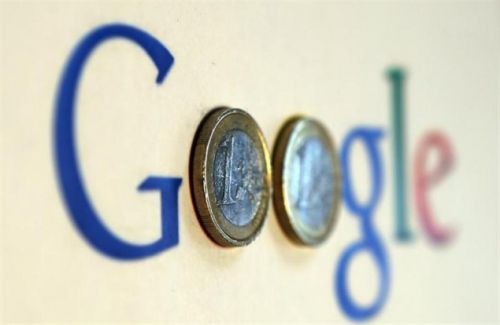(单词翻译:单击)
George Osborne has announced plans to raise more than £1bn over the next five years from a new “diverted profits” tax on multinationals but details were scanty and advisers said it was not clear how the levy would work.
英国财政大臣乔治•奥斯本(George Osborne)宣布,未来5年计划针对跨国公司征收逾10亿英镑的“转移利润税”,但他没有透露具体细节,咨询师们表示,目前还不清楚这一税收将如何实施。

The measure was unveiled by the chancellor yesterday as part of his Autumn Statement to “make sure that big multinational businesses pay their fair share”.
作为秋季预算报告(Autumn Statement)的一部分,奥斯本昨日宣布了这一举措,其目的是“确保大型跨国企业承担合理税赋比例”。
The move, widely dubbed the “Google tax”, was described by Mr Osborne as a crackdown on “some of the largest companies in the world, including those in the tech sector, [that] use elaborate structures to avoid paying taxes”.
这项税收被普遍称作“谷歌税”(Google tax),奥斯本认为开征该税将打击“全球一些利用复杂结构避税的大型企业(包括科技企业)”。
Advisers questioned whether the measure, intended to raise £1.4bn in total by 2019-20, would be compatible with the UK’s double tax treaties.
顾问们对此举是否与英国的双重税收协定一致提出质疑,该举措打算到2019/2020年度,总共筹集14亿英镑税收。
One executive at a leading technology company said the industry was unlikely to fight the measure but described the move as “unilateral action” that went beyond a continuing OECD examination of international tax reform.
一家领先科技公司的高管表示,科技行业不太可能对抗这一举措,但他认为此举属“单边行动”,不会符合经合组织(OECD)仍在继续的对国际税收改革的考察。
“We’ll see what our tax experts make of it . . . but it’s for politicians to make laws, and we will follow them,” he said.
他表示:“我们要看看我们的税收专家怎么看……但制定法律的是政治人士,我们会遵从他们的决定。”
Chris Morgan of KPMG, the professional services group, speculated that the new tax would be a “deemed profits” tax rather than a corporation tax, so as to sidestep issues raised by double tax treaties.
专业服务机构毕马威(KPMG)的克里斯•摩根(Chris Morgan)推测,新税收将属于“核定利润税”,而非企业税,因此将可以回避双重税收协定引发的问题。
He suggested the Treasury would identify profits that escaped tax in the UK because of royalty arrangements or the absence of a taxable presence.
他认为,财政部将核定那些因使用费安排或者缺乏应纳税存在,而得以在英国避税的利润。
He said: “It seems to be something completely novel . . . It is a huge stick that will stop this artificial avoidance. The difficulty will be how it is defined in practice.”
他表示:“这似乎是一种全新的税收……它具有巨大的震慑作用,将阻止人为避税。问题是实际操作中如何界定。”
He described it as a “nuclear option” aimed at encouraging companies to adapt their structures to pay more tax in Britain. He said: “Companies that have been pushing the envelope will be very worried.”
他将此举称为一个“核选项”,旨在促使企业调整结构以在英国缴纳更多税赋。他表示:“那些打擦边球的企业会感到非常担忧。”


